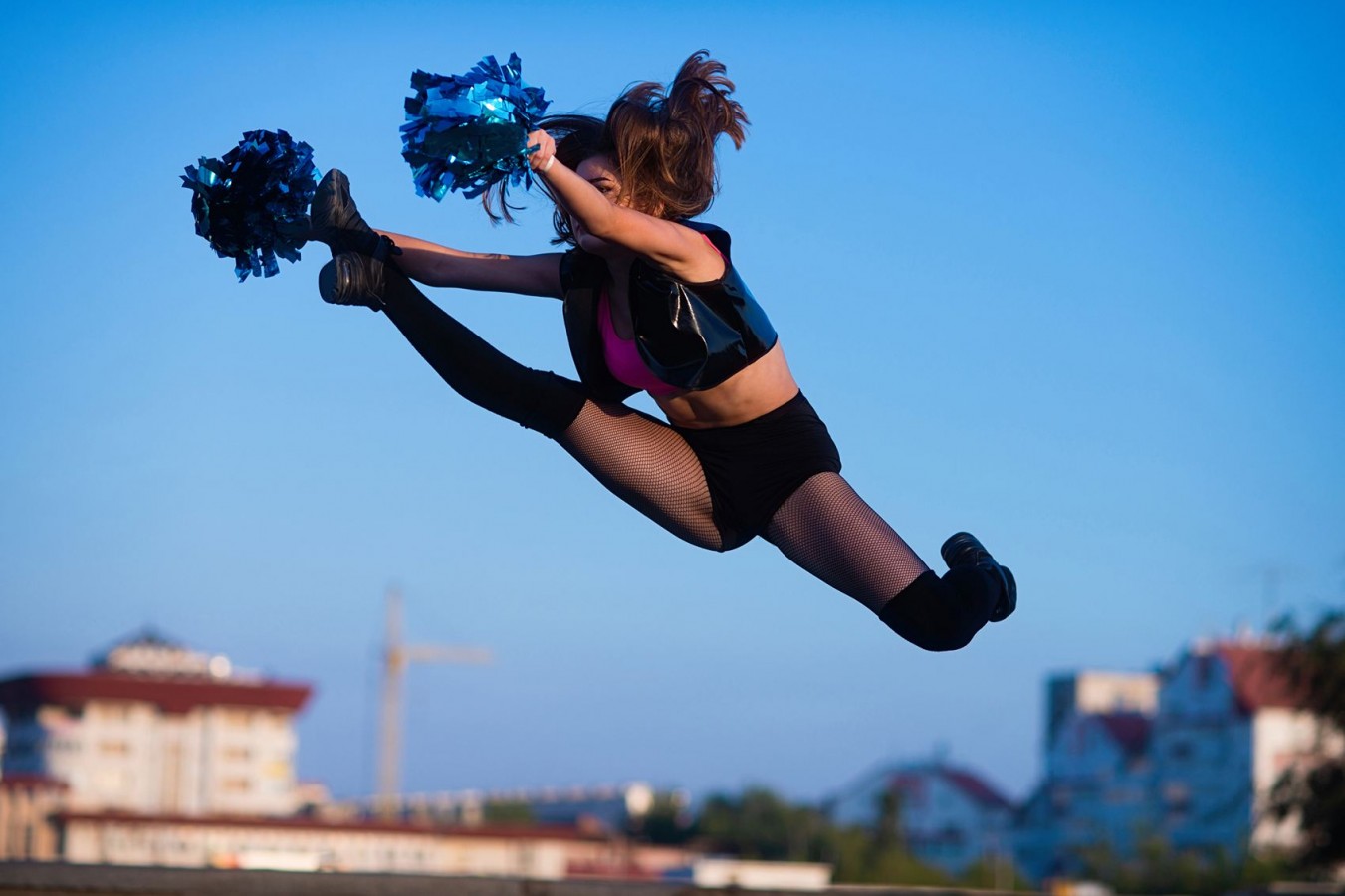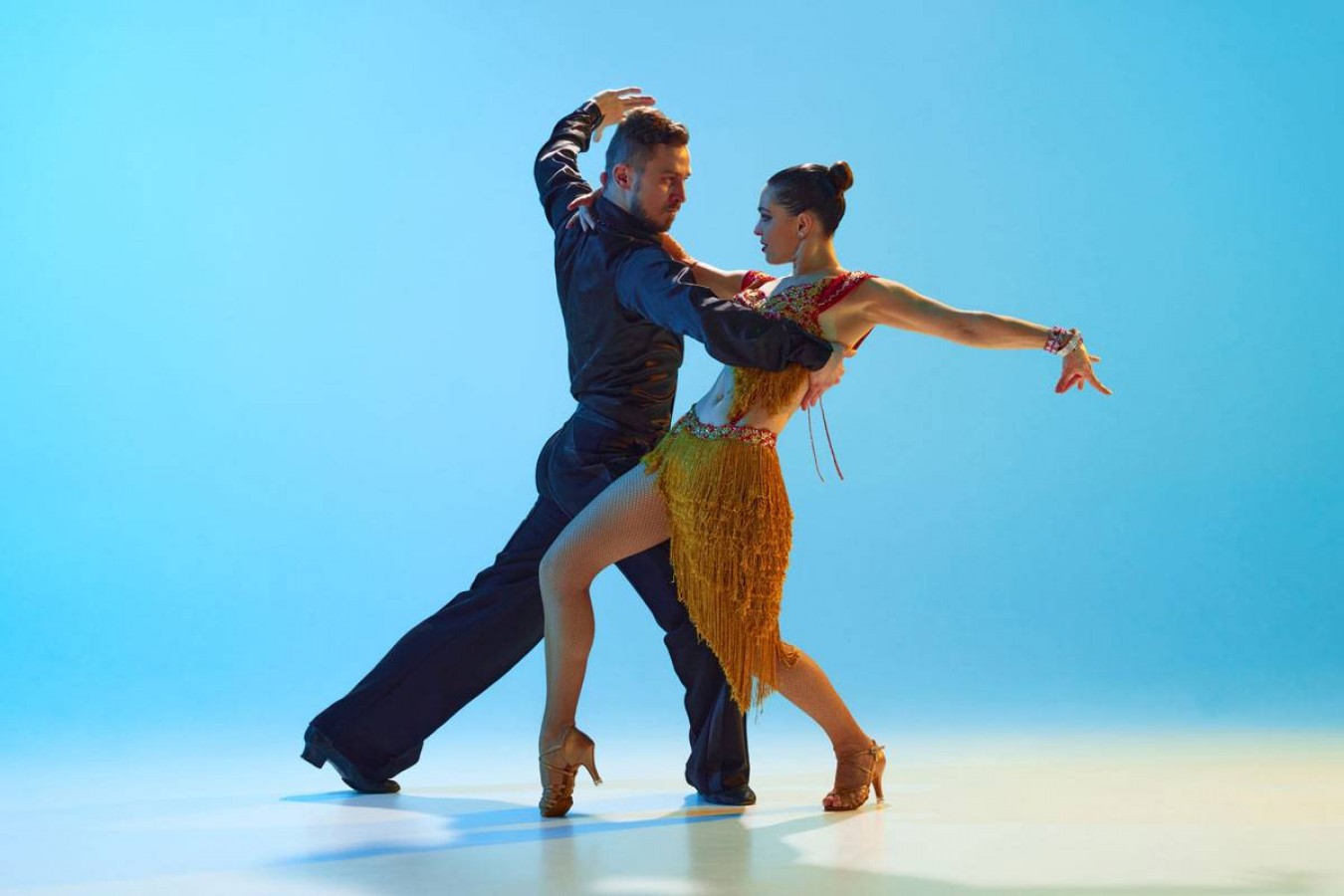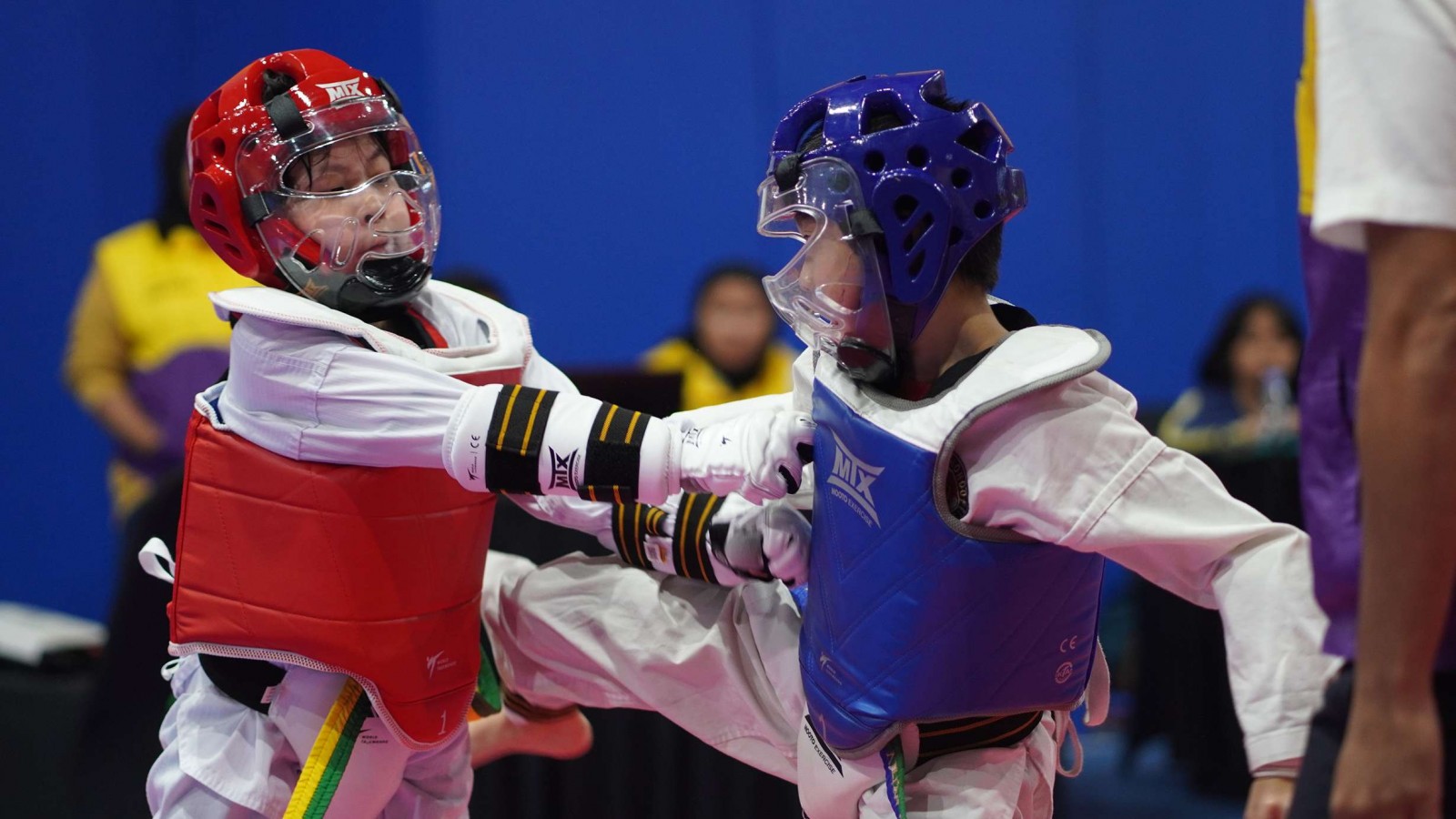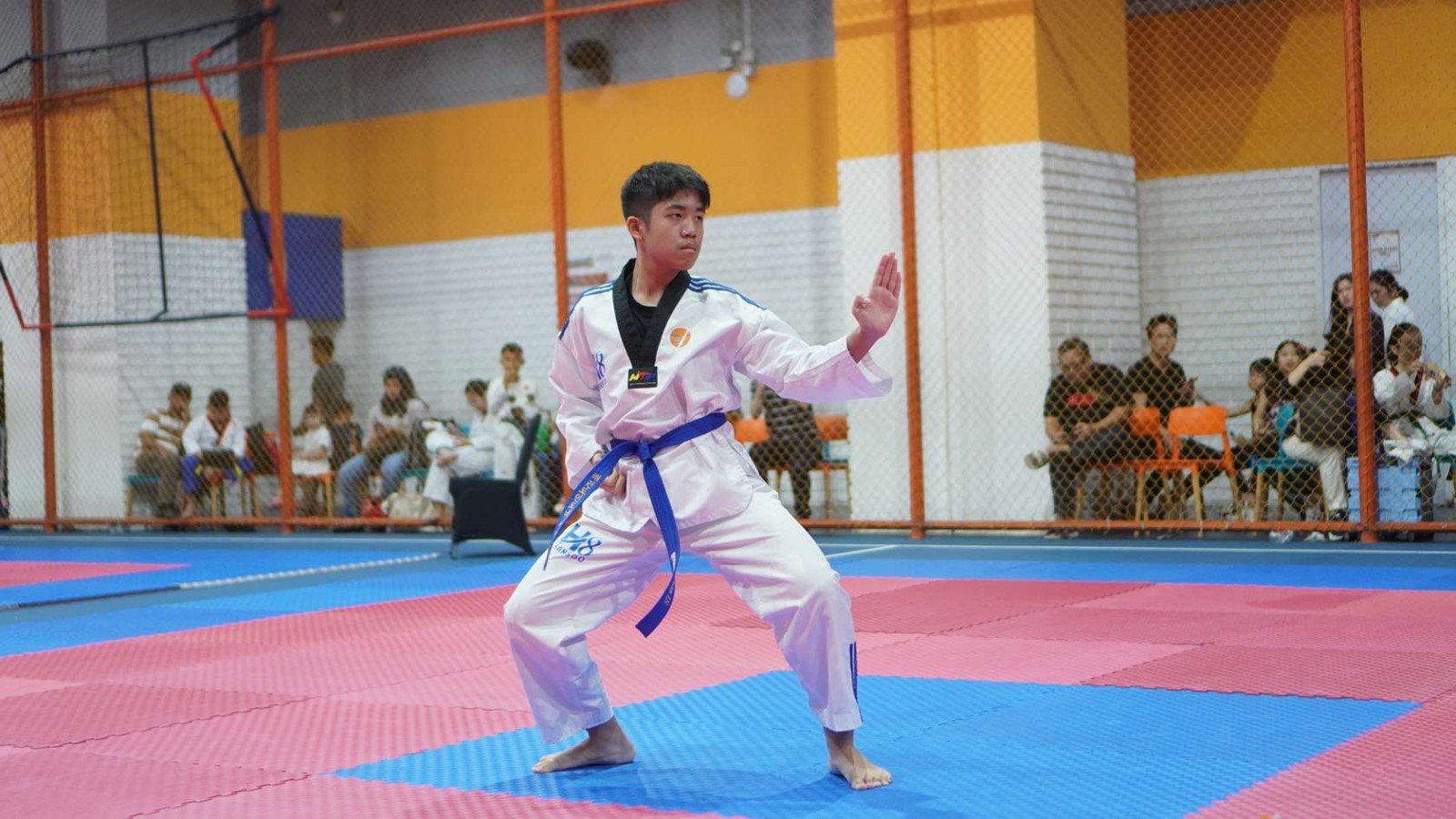Cheerleading Toe Touch Jump: Technique and Training Tips

Cheerleading is all about energy and excitement, and one of the most iconic moves is the toe touch jump. This high-energy jump highlights a cheerleader's athleticism, flexibility, and precision, making it an essential skill for cheerleaders of all levels.
In this article, we'll walk you through how to perform the toe touch jump, along with some key warm-up exercises to get you ready for it.
What is the Toe Touch Jump in Cheerleading?
The toe touch jump involves leaping into the air while extending both legs outward in a straddle position, with the goal of achieving a straight horizontal line.
At the peak of the jump, the arms are typically extended parallel to the legs in a "T" motion. This jump is not only visually impressive but also tests the cheerleader's strength, flexibility, and coordination.
How to Perform a Toe Touch Jump in Cheerleading
Mastering the toe touch jump requires attention to technique, timing, and body control. It also requires strong core muscles. Here’s a step-by-step guide:
1. Start with Proper Posture
Stand upright with your feet together, arms by your side, and engage your core muscles to maintain balance.
2. Prepare with a High V Motion
Begin the jump by swinging your arms into a high "V" position while bending your knees slightly to prepare for springing off the ground.
3. Jump and Extend
Push off the ground with high power, using your legs and arms for momentum, and extend your legs outward into a straddle position, keeping them straight and your toes pointed.
4. Engage the Core and Arms
At the height of your jump, use your core to lift your legs while keeping your torso upright, and extend your arms into a "T" shape, aligning them parallel to your legs.
5. Land Safely
Bring your legs back together as you descend, and land softly on the balls of your feet with knees slightly bent to absorb the impact.
How to Stretch for a Toe Touch Jump
Flexibility is a crucial component of a successful toe touch jump. Incorporating a consistent stretching routine into your practice can significantly improve your range of motion and reduce the risk of injury.
Before stretching, ensure your muscles are warm with light cardio exercises like jogging or jumping jacks. Here’s essential stretches for toe touch jump:
A. Straddle Stretch
Sit on the floor with your legs extended in a wide straddle, lean forward with a straight back, and reach toward the ground.
B. Butterfly Stretch
Sit with your feet together and knees bent outward, gently pressing your knees toward the floor while leaning forward.
C. Hamstring Stretch
Extend one leg straight in front of you while keeping the other bent, then reach for your toes and hold the stretch.
D. Pike Stretch
Sit with both legs extended straight in front of you and reach for your toes with your hands, keeping your back straight.
E. Hip Flexor Stretch
Kneel on one knee and place the other foot in front of you at a 90-degree angle, then lean forward slightly to stretch the hip flexor.
F. Side Lunges
Stand with your feet wide apart, then shift your weight to one side, bending your knee while keeping the other leg straight.
How to Improve Your Toe Touch Jump
Improving your toe touch jump requires a combination of strength, flexibility, and technique training. Below are some effective strategies:
1. Strength Training
Core workouts, such as planks, crunches, and Russian twists, are essential for lifting your legs higher, while leg strength exercises like squats, lunges, and calf raises build power in your legs. Additionally, plyometric training, including box jumps and jump squats, improves jump height and control.
2. Flexibility Training
Work on achieving a full straddle stretch to ensure your legs can extend fully during the jump, and regularly stretch your hamstrings, hip flexors, and inner thighs.
3. Drill Repetitions
Practice toe touch jumps regularly, focusing on technique rather than height initially, and use a mirror or record yourself to monitor progress and identify areas for improvement.
4. Breath Control
Synchronize your breathing with your movements by inhaling during preparation and exhaling during the jump for better control.
Master This Beautiful Technique!
As mentioned earlier, mastering the toe touch jump requires flexibility, balance, strength, and perfect timing. Once you're comfortable with this move, you can begin learning other cheerleading jump techniques. However, always practice with full attention to safety, as this technique can be risky.
To learn more and safely perfect your cheerleading skills, consider joining a cheerleading class. Rockstar Academy is one of the best Sports & Performing Arts Academies in Indonesia, offering world-class training.
Our programs provide opportunities to participate in prestigious events like the Recital, Elite Championships and RockOlympics. Participating in these events is your chance to sharpen your cheerleading skills and let your talent take center stage!
And the best part? You can try a free trial class before committing! It’s a great way for both kids and parents to experience the training first-hand.
FAQ
How high should I jump for a toe touch?
Aim for enough height to comfortably lift your legs into a straddle position while keeping your torso upright. Height will improve with strength and practice.
How can I prevent injuries while practicing toe touch jumps?
Warm up thoroughly before practice, use proper technique, and land softly to reduce impact on your joints. Stretch regularly to maintain flexibility.
Can I perform a toe touch jump if I’m not flexible?
Yes, but improving flexibility will make the jump easier and more effective. Start with basic stretches and gradually increase your range of motion.
How often should I practice toe touch jumps?
Practice 2–3 times a week, focusing on quality over quantity to avoid overuse injuries.
Why is my jump height not improving?
Lack of strength or improper technique may be the cause. Incorporate strength training, plyometrics, and regular drills into your routine.



